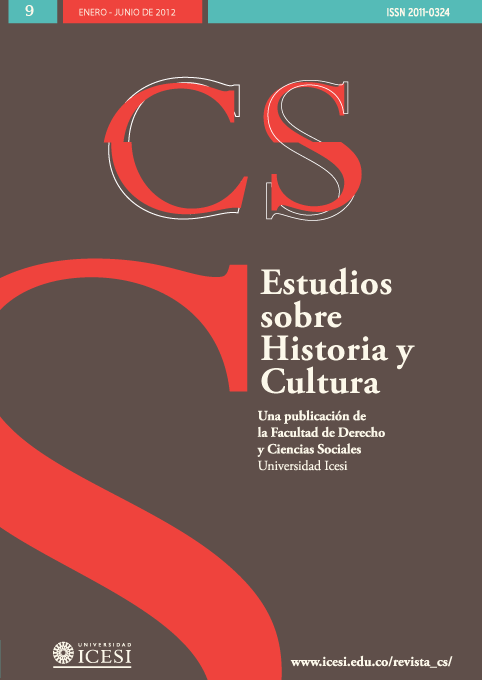The Interview and its Specific Conditions
DOI:
https://doi.org/10.18046/recs.i9.1225Keywords:
Interview, work of the sociologist, social interaction, corporal hexisAbstract
In some instances, the sociologist confronts an interview situation in which objectivity has been compromised simply by virtue of the degrees he or she holds places him or her in a dominant position with respect to the interview subject. This article presents a reflection addressing the opposite situation, one in which the sociologist occupies a dominated position. The authors present the particular challenges in conducting sociological research on the dominant classes, emphasizing the social markers that come into play in such face to face interaction.Downloads
References
Beaud, E. (1996). '' L'usage de l'entretien en sciences sociales. Plaidoyer pour l'entretien ethnographique '', Politix 35.
Blanchet, A. (Dir.) (1985). L'Entretien dans les sciences sociales. Paris : Dunod.
Blanchet, A. (1991). Dire et faire dire. L'entretien. Paris : Armand Colin.
Blanchet, A. y Gotman, A. (1992). L'Enquête et ses méthodes : l'entretien. Paris : Nathan Université.
Bourdieu, P. (Dir.) (1999). La Miseria del Mundo. Toledo: Akal.
Bourdieu, P. (1972). Esquisse d'une théorie de la pratique. Genève–Paris: Librairie Droz.
Chamboredon, J.C. y Lemaire, M. (1970). '' Proximité spatiale et distance sociale. Les grands ensembles et leur peuplement ''. Revue française de sociologie 11 (1), pp. 3–33.
Chamboredon, H., Pavis, F., Surdez, M. y Willemez, L. (1994). '' S'imposer aux imposants. A propos de quelques obstacles rencontrés par des sociologues débutants dans la pratique de l'usage de l'entretien ''. Genèses 16, pp. 114–132.
Devereux, G. (1977). De la ansiedad al método en las ciencias del comportamiento. México D.F.: Siglo XXI.
Grunberg, G. y Schweisguth, E. (1996) '' Bourdieu et la misère. Une approche réductionniste ''. Revue française de science politique. 46 (1), pP. 134–155.
Kandel, L. (1972). '' Réflexions sur l'usage de l'entretien notamment non directif et sur les études d'opinion ''. Epistémologie sociologique, 13.
Mauger, G. (1995). '' La situation d'enquête ''. Informations sociales 47, pp. 24–31.
Mauger, G. (1991). '' Enquêter en milieu populaire '', Genèses 6, pp. 125–143.
Mayer, N. (1995). '' L'entretien selon Pierre Bourideu. Analyse critique de la Misère du monde '' Revue française de sociologie. EDITORIAL 355–370.
Michelat, G. (1975). '' Sur l'utilisation de l'entretien non–directif en sociologie ''. Revue française de sociologie, XVI, pp. 229–247.
Faguer, J–P. (1995). Khagneaux pour la vie. Une histoire des années soixante. Paris : CEE, Dossier 5.
Goffman, E. (1993). La presentación de la persona en la vida cotidiana. Amorrortu: Buenos Aires.
Pharo, P. (1996). L'injustice et le mal. Paris : L'Harmattan.
Pinçon M. y Pinçon–Charlot, M. (1991). '' Pratiques d'enquête dans l'aristocratie et la grande bourgeoisie: distance sociale et conditions spécifiques de l'entretien semi–directif '', Genèses 3, pp. 120–133.
Pinçon, M. (1987). Désarrois ouvriers, Familles de métallurgistes dans les mutations industrielles et sociales. Paris: L'Harmattan.
Sartre, J–C. (1967). Question de méthode. Paris: Gallimard.
Downloads
Published
Issue
Section
License
Copyright (c) 2012 Michel Pinçon, Monique Pinçon-Charlot

This work is licensed under a Creative Commons Attribution-NonCommercial 4.0 International License.
© Reserved Copyright
Material in this publication may be reproduced without authorization, provided the title, author and institutional source is acknowledged.
The content published in Revista CS is distributed under the Creative Commons BY-NC 4.0 Attribution/Recognition-NonCommercial 4.0 International license.
You are free to:
Share — copy and redistribute the material in any medium or format.
Adapt — remix, transform, and build upon the material.
Under the following terms:
Attribution — You must give appropriate credit , provide a link to the license, and indicate if changes were made . You may do so in any reasonable manner, but not in any way that suggests the licensor endorses you or your use.
NonCommercial — You may not use the material for commercial purposes.












